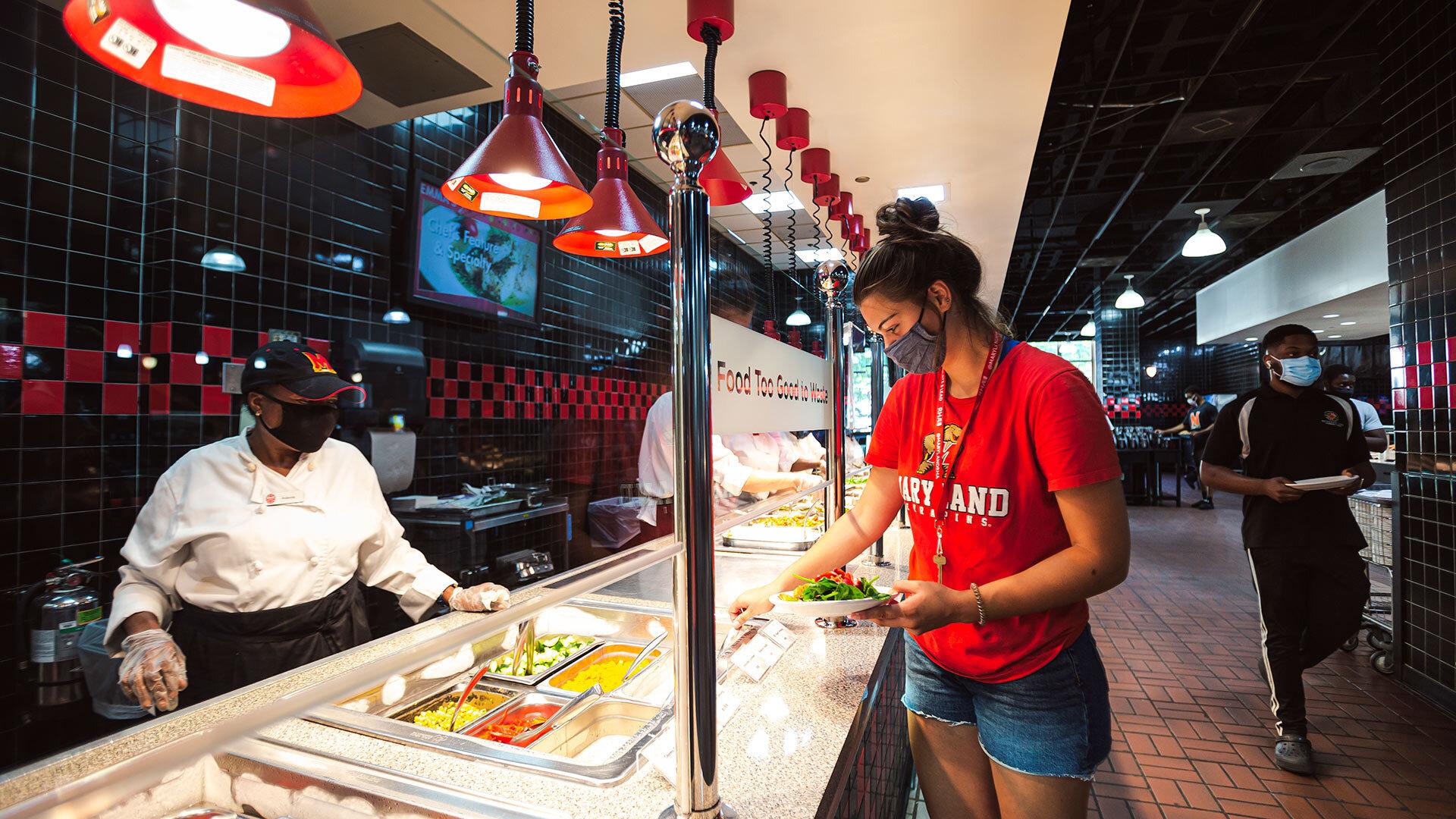
10-Years of Sustainable Food
Feature Article for 2021-2022, by Emily Hightower and Caitlin Lundquist
Positioned in the Division of Student Affairs, UMD’s Dining Services provides food service to the entire campus community. Dining Services operations cover three residential dining halls, five convenience shops, ten cafes, two food courts, a full-service restaurant, athletic concessions, catering, a mobile dining food truck and many other programs.
UMD’s award-winning Dining Services program has served as a leader for sustainability initiatives on campus for over a decade. From reducing food waste to creating healthy and low-carbon menu options, Green Dining programs aim to educate the campus community while making strides toward the university's goal of carbon neutrality. UMD's sustainable food efforts span across the food system from farm to fork to compost. Each year, exceptional staff, faculty, and students drive the continued progress and success of UMD's Green Dining program.
In the sections below, find out more about the progress Maryland Dining has made over the years in advancing sustainability efforts at UMD:
- Committing to Sustainable Food at UMD: Green Dining programs encourage a culture of sustainable food on campus, help the university accomplish climate action goals, and support local businesses and farms.
- Partnering for Food Affordability, Access, and Sustainability: To meet goals, Dining Services partnered with students, faculty, and staff from across the campus, developing innovative programs like Terp Farm, Campus Pantry, and Food Recovery Network.
- A New Decade of Sustainable Commitments: A leader among campus sustainability partners, Dining Services looks to the next phase of sustainable food at UMD.
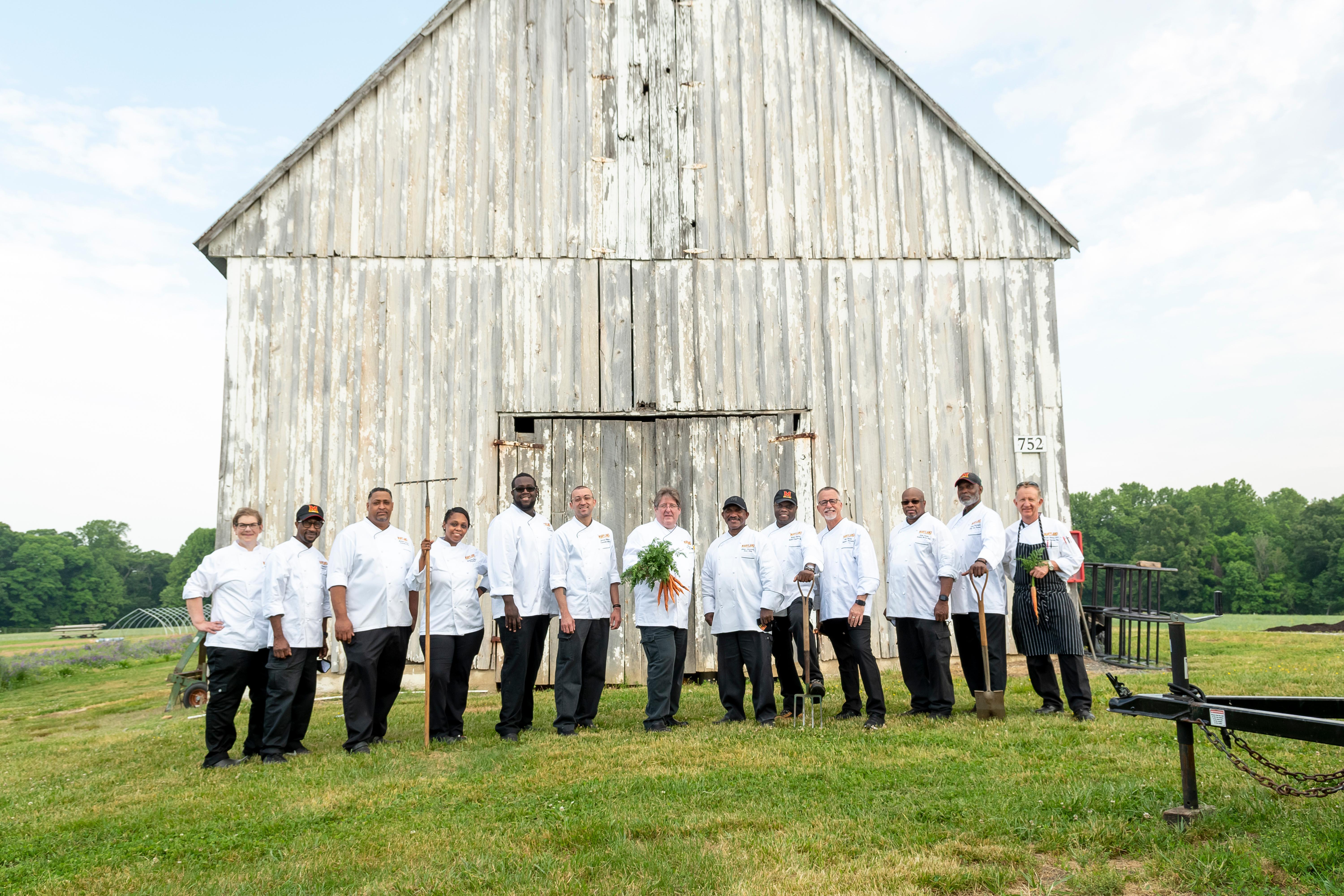
Committing to Sustainable Food at UMD
Dining Services implemented the Sustainable Food Commitment and Action Plan in 2012, beginning the shift in food culture on campus.
Sustainability is a core focus of UMD's Dining Services program and campus food system. For over a decade, Dining Services has worked to build the foundation of UMD's current sustainable food culture alongside students, staff, and faculty. To support the University’s climate action goals, the 2012 Sustainable Food Commitment set targets to procure 20% local and sustainable food by 2020, increase sustainable food purchases 1-4% annually, and to incrementally increase procurement of unprocessed whole foods and foods from local growers each year. By 2015, UMD’s Dining Services accomplished the Sustainable Food Procurement target and was well into maintaining the three remaining strategies.
In almost every year over the past decade, Dining Services established new sustainability programs. This progress underscores their unwavering dedication to providing nutritious and accessible food to the entire campus community while reducing the environmental impacts of their operations. Explore the following timeline to see the history of UMD's Green Dining program in key milestones and achievements.
Alignment with UN Sustainable Development Goals
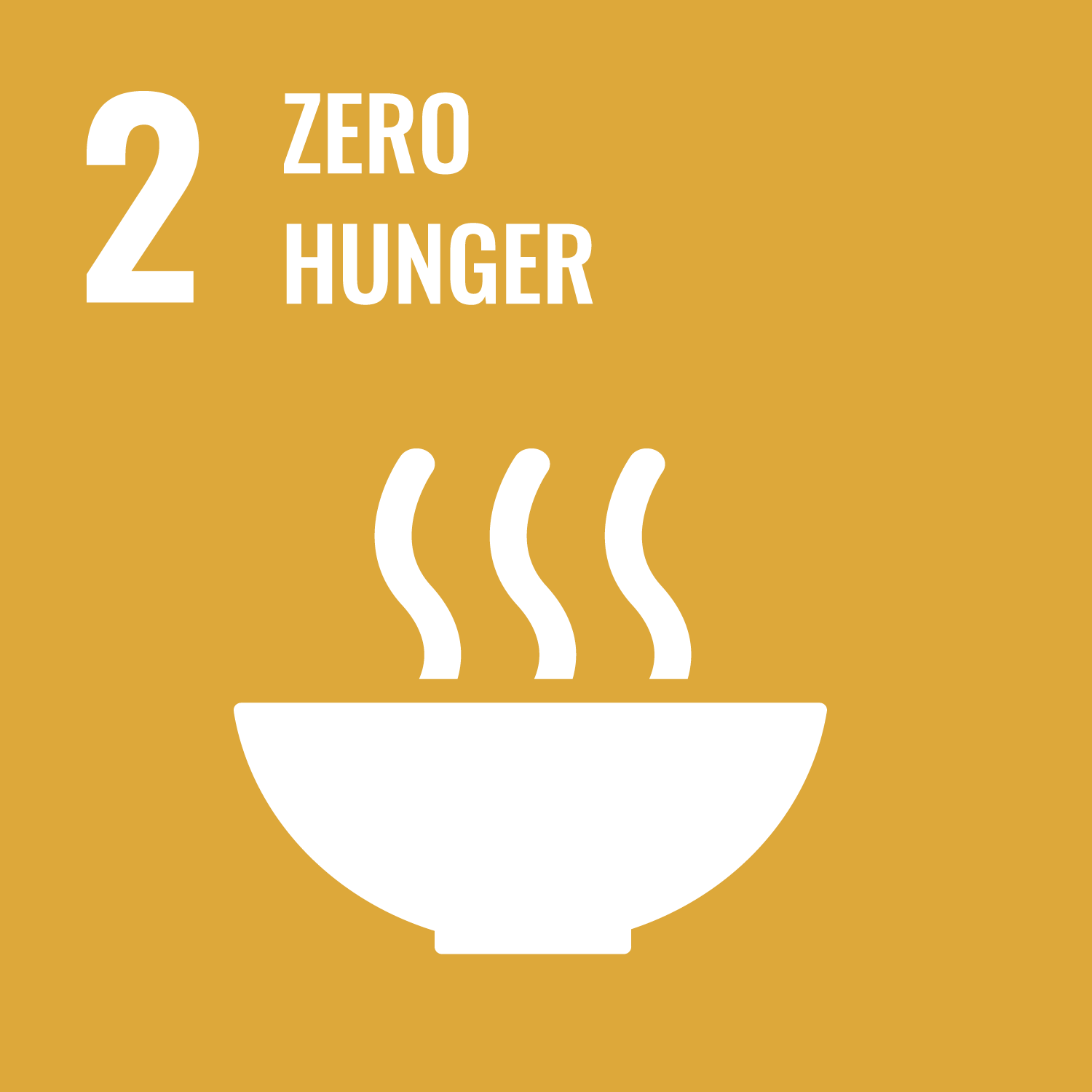 |  | 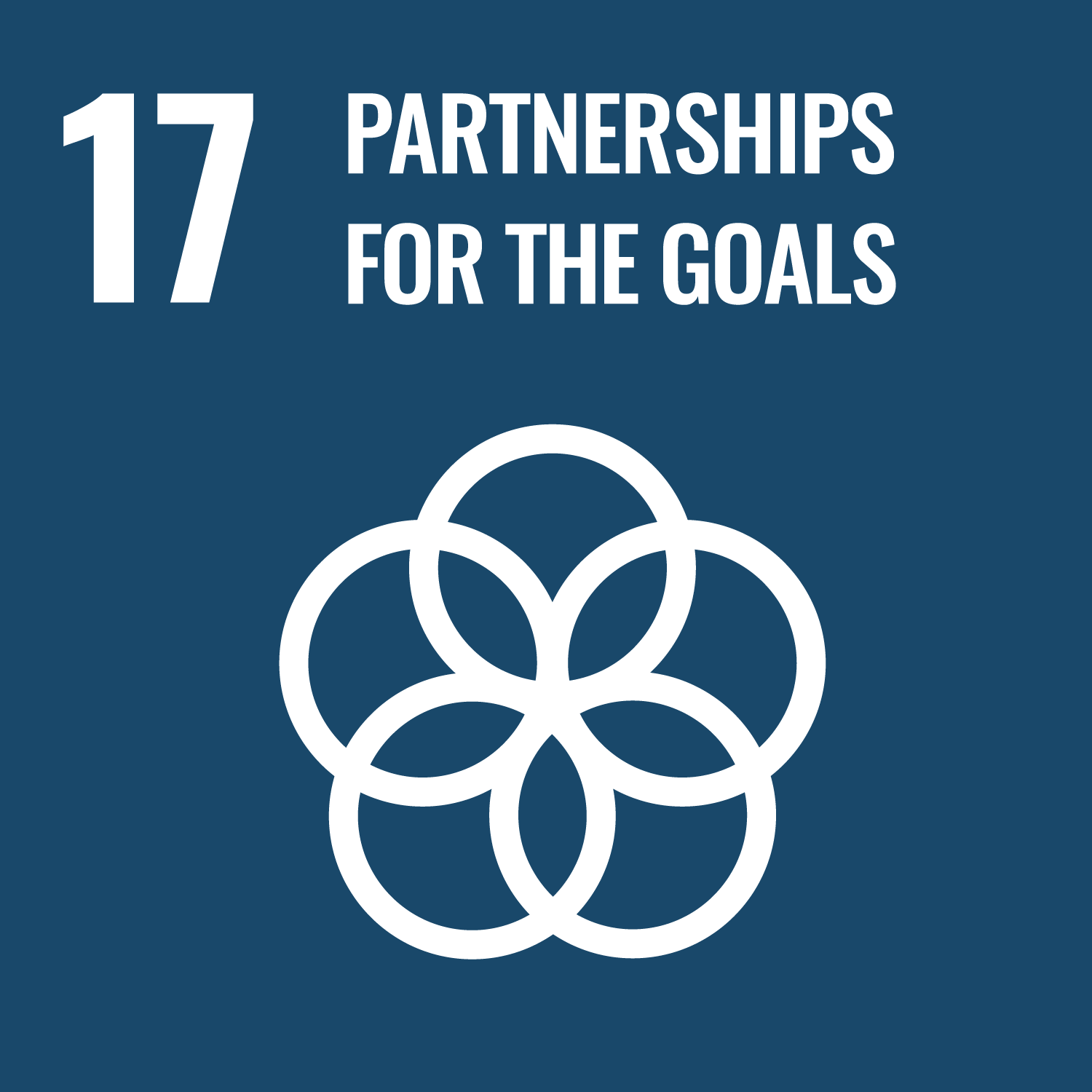 |
Learn more about these Global Goals
| Navigate: | To the article contents |
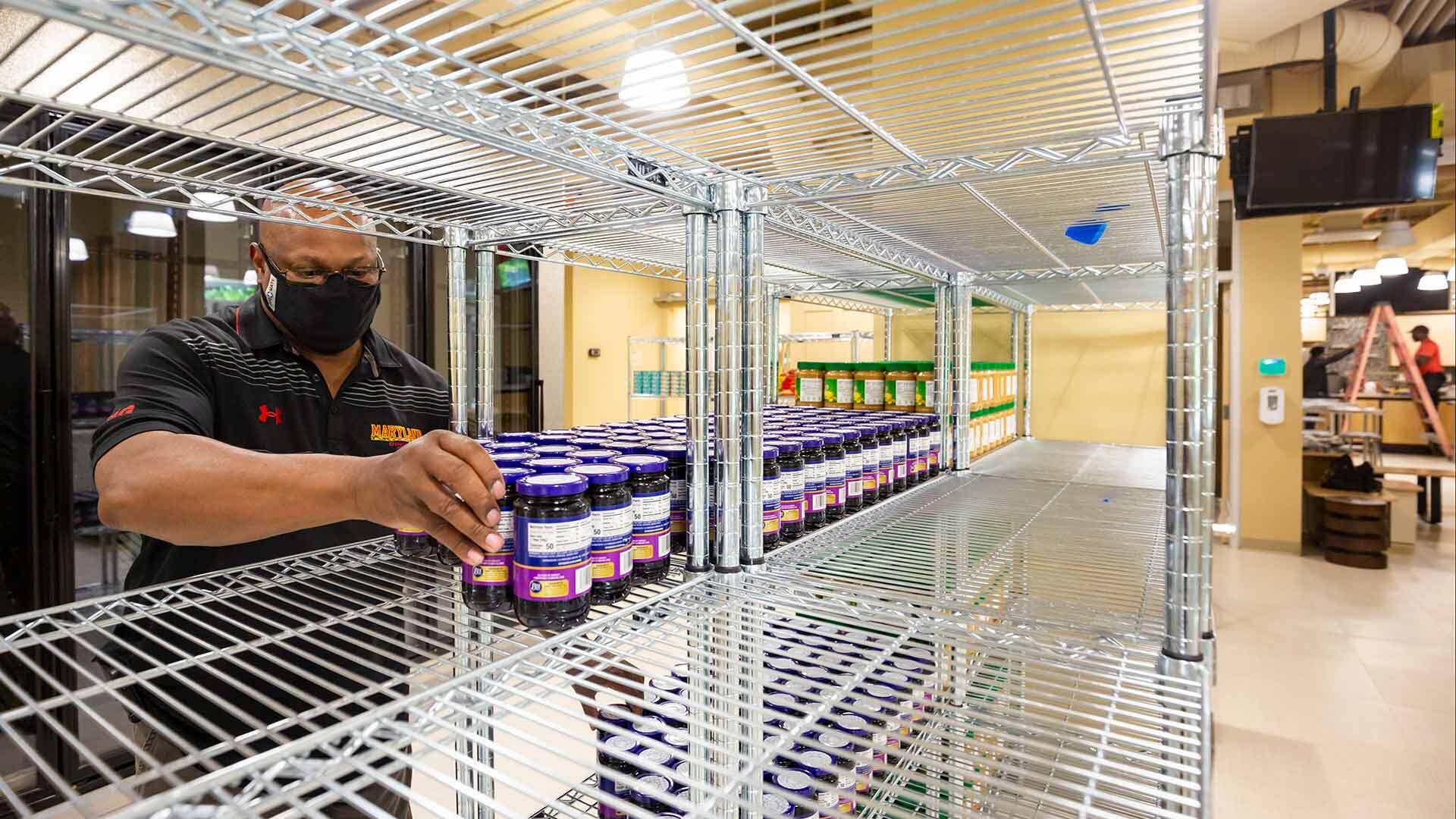
Partnering for Food Affordability, Access, and Sustainability
To drive progress towards commitments, Dining Services established partnerships with students, staff and faculty.
Maryland Dining Services reaches beyond traditional strategies to reduce greenhouse gas emissions from campus operations by developing opportunities for everyone who eats on campus to participate in carbon reduction as they work together to transform the campus food system. Between 2012 and 2022, Dining Services implemented programs that address food access and well-being, support local farms and small businesses, reduce food and agriculture waste, and generally develop a culture of sustainable food on campus and beyond. Partnerships between student groups, academic colleges, and local businesses helped UMD meet the sustainable food purchasing commitment and other climate action goals. Explore the historical and current programs below to learn more about Green Dining at UMD.
Campus Pantry:
Approximately 20 percent of UMD students lack reliable access to sufficient quantities of affordable, nutritious food. The UMD Campus Pantry is open to help students, faculty, and staff experiencing food insecurity by providing emergency food to the UMD community. The Pantry is part of a larger initiative to promote food security on campus. In the 2021-2022 academic year, Campus Pantry visits served approximately 15% of the UMD community.
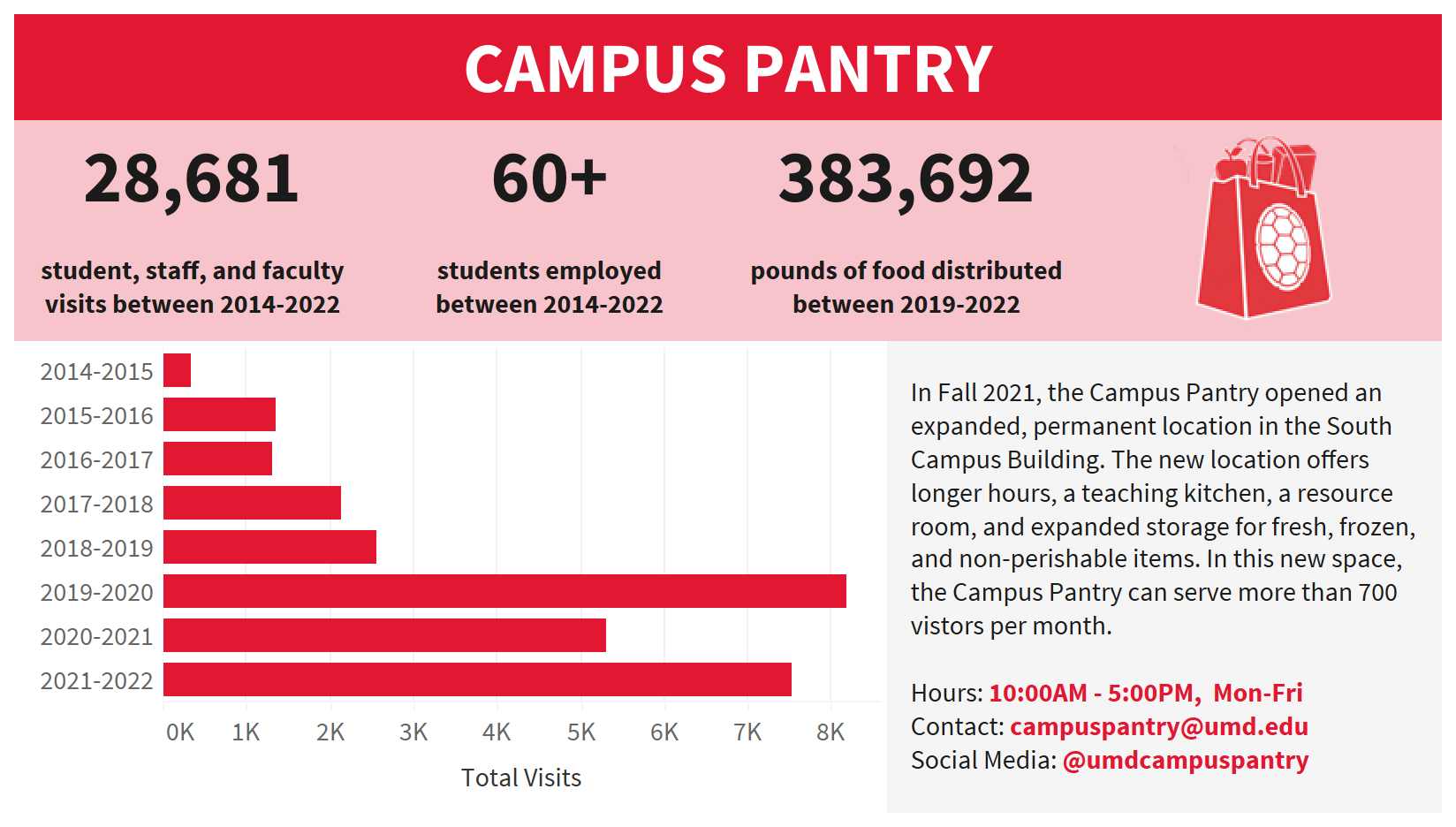
Terp Farm:
Terp Farm is a partnership between the College of Agriculture and Natural Resources and Dining Services to grow sustainable produce on University land to be served on campus. Vegetables are grown with the help of students through course-work, labs, internships, and volunteer experiences. At least 10% of the produce grown is donated to the local community. The farm is located 15 miles from College Park at the College of Agriculture and Natural Resources (AGNR) Upper Marlboro Facility, a 202-acre research farm.
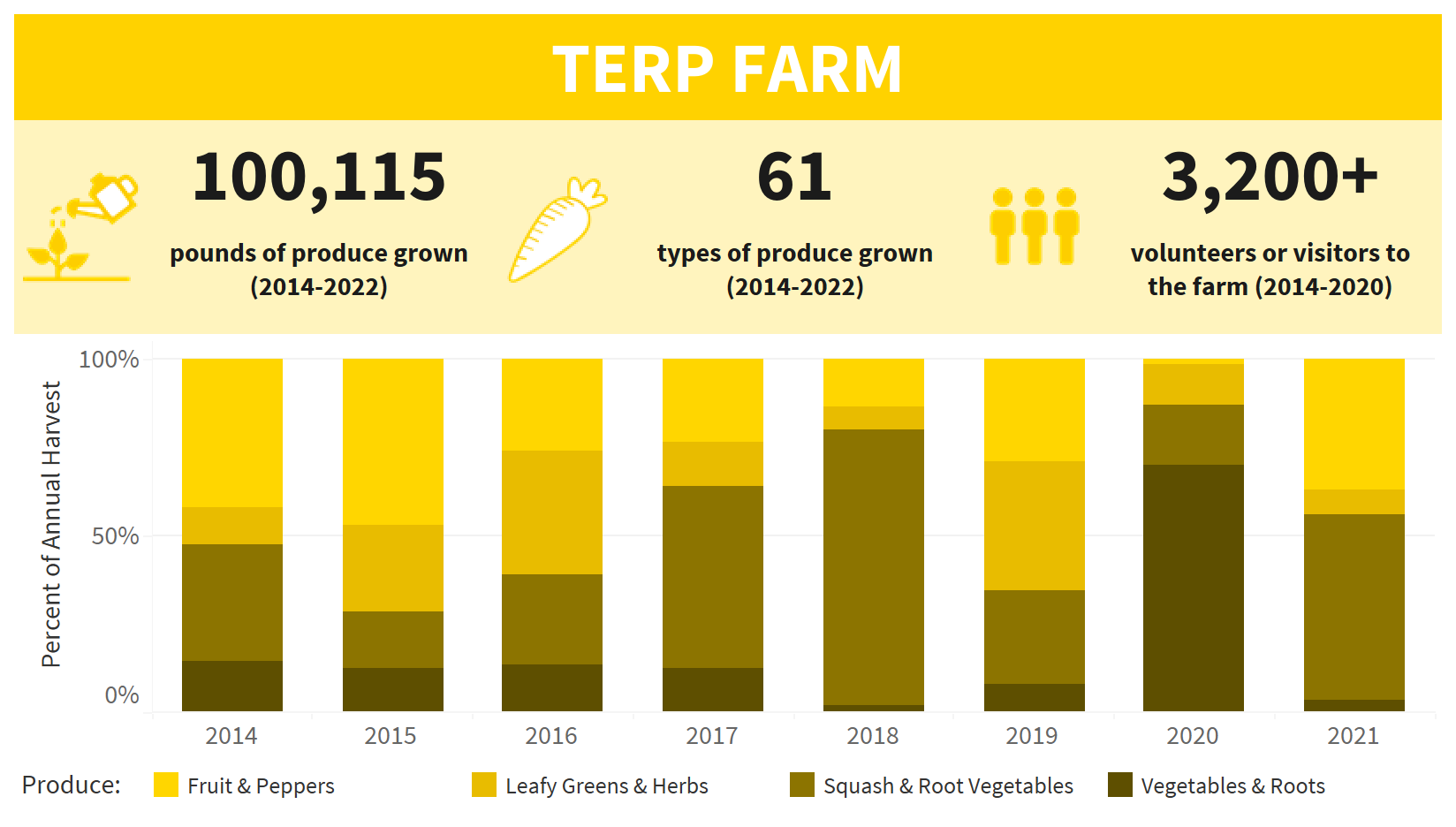
Farmers Market:
UMD hosts the Farmers Market at Maryland from April through November bringing local vendors together with students, faculty and staff on campus. The Farmers Market features producer-only local vendors from within 250 miles of College Park. Every farmer and producer selling at our market grows or makes what they sell themselves. Weekly educational opportunities, such as cooking demonstrations, celebrate the harvest of the season and equip the campus community to prepare local foods.

Food Recovery Network:
The Food Recovery Network, a national network of student volunteers, started at UMD and recovers surplus food from dining operations to alleviate hunger and reduce food waste. Recovered food is donated in the local Washington DC area to those in need. Between 2013 and 2022, Food Recovery Network student leaders, volunteers and partner student organizations recovered over 314,000 pounds (142,452 kilograms) of food.
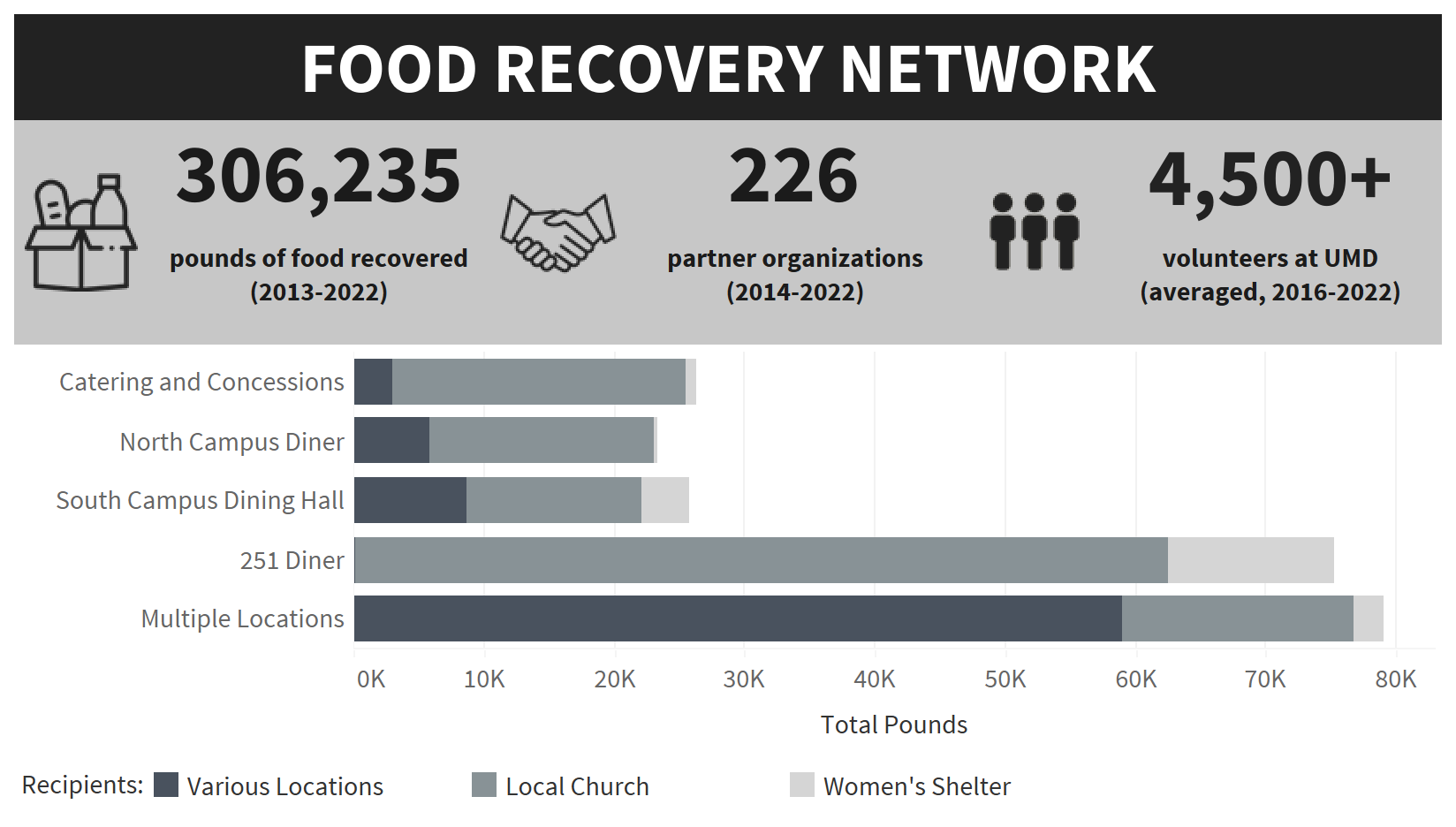
Anytime Dining and Ocean Friendly Campus:
With the introduction of Anytime Dining in 2016, UMD reduced or eliminated single-use disposable items from the dining rooms, reduced food waste, and saved water by removing trays from dining halls. Beginning in Fall 2019, Dining Services began the Ocean Friendly Campus Initiative in partnership with the Sustainability Fund and Sustainable Ocean Alliance. The initiative replaced single use plastics with available compostable alternatives and provided the UMD community more than 14,000 reusable bags.

Menus of Change University Research Collaborative:
In summer 2018, Dining Services joined the Menus of Change University Research Collaborative (MCURC), an extension of the Menus of Change®. MCURC is a collaboration of forward-thinking scholars, food service leaders, executive chefs, and administrators for colleges and universities who are accelerating efforts to move people toward healthier, more sustainable, and delicious foods using evidence based research, education, and innovation. At the core of this collaborative are the 24 Menus of Change Principles of Healthy, Sustainable Menus.
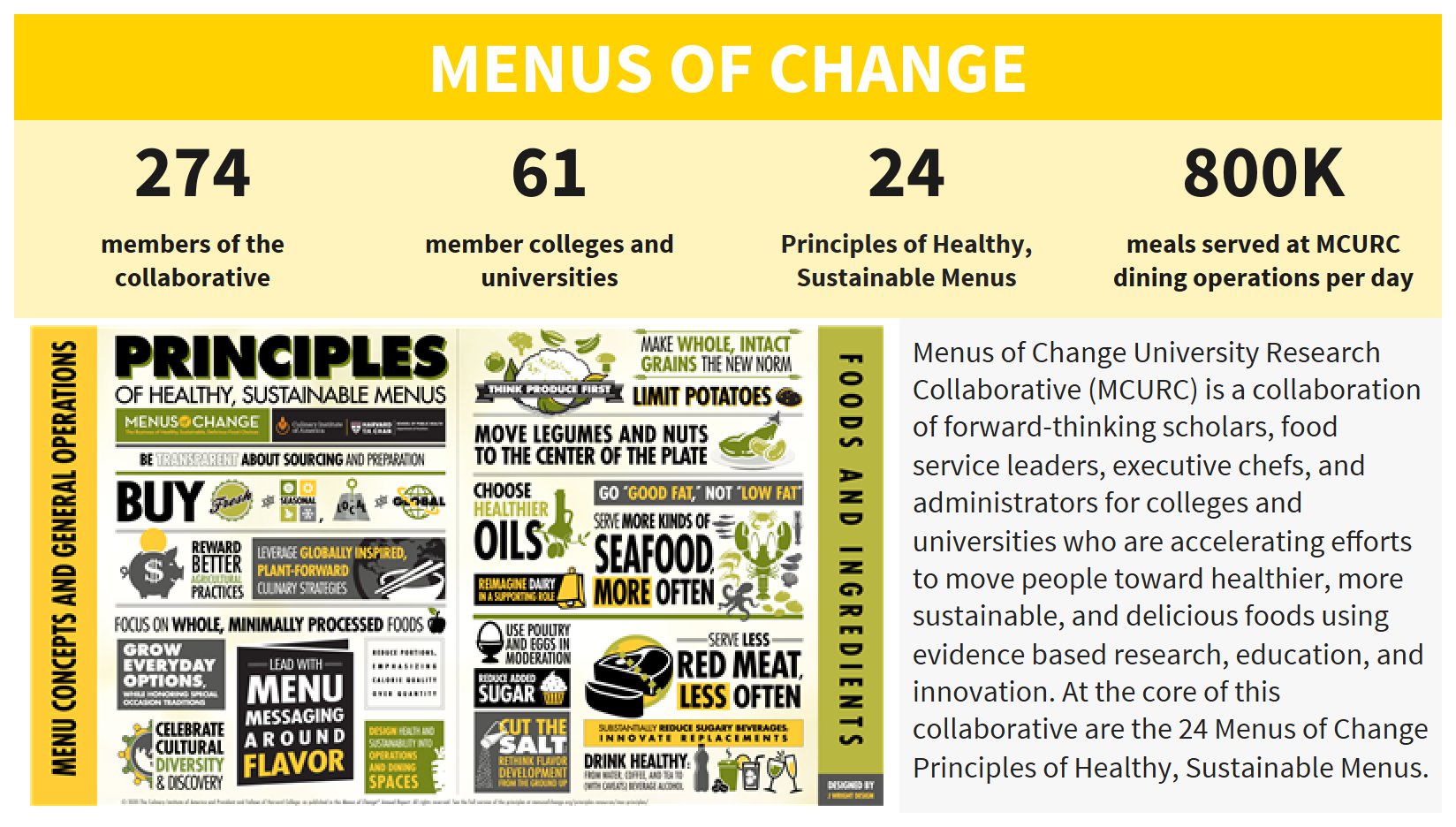
Cool Food Pledge:
In 2019, UMD became the first university signatory of the Cool Food Pledge to slash food-related greenhouse gas emissions by 25% by 2030, aligning with the UN 2016 Paris Climate Agreement. The Cool Food Pledge is an initiative of the World Resources Institute, UN Environment, Carbon Neutral Cities Alliance, Health Care Without Harm, Practice Greenhealth, Climate Focus, EAT, and the Sustainable Restaurant Association. The pledge’s three-pronged approach of “Pledge-Plan-Promote” gives UMD-DS the opportunity to not only serve delicious dishes with smaller climate footprints, but educate about climate action as well. The Cool Food Pledge launched a new decade and transformation of Dining Services’ engagement with students, the broader campus community, peer institutions and fellow signatories.
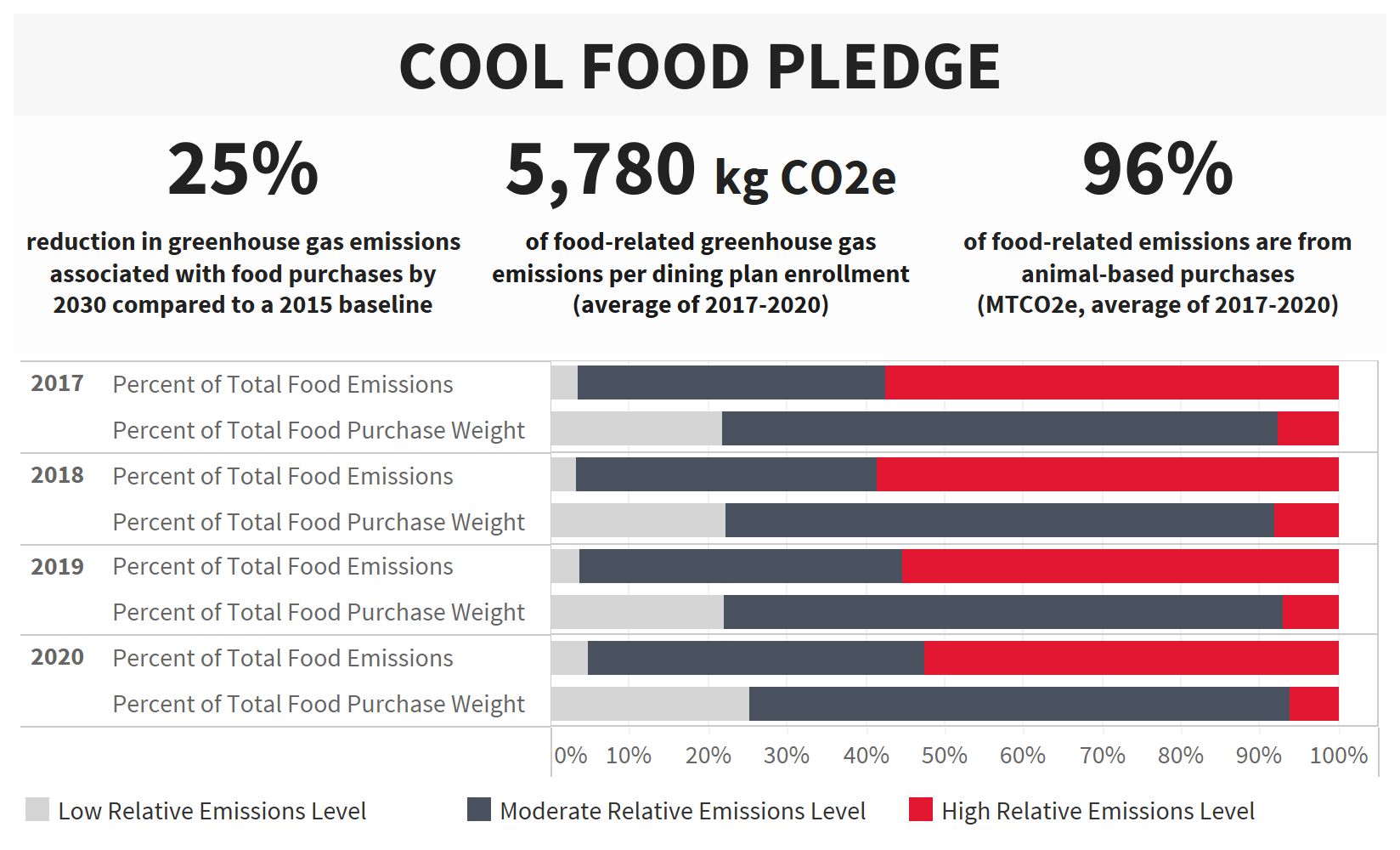
Hunger-Free UMD Workgroup:
Utilizing the results of The Food Access and Student Well-Being Study and recommendations developed by the Fall 2018 INNOVO Scholars from the Robert H. Smith School of Business, Dining Services created a Hunger-Free Workgroup focused on combating food insecurity and its surrounding issues with the goal of creating a hunger-free campus. The Workgroup has joined with the Fostering Terp Success Workgroup to create the "Coalition for Terps Essential Needs" initiative. This coalition aims to ensure the essential needs such as housing and food security are met for the entire UMD community. All three programs are part of a collective effort at UMD to address the grand challenges of our time and work towards the vision as outlined in the United Nations Sustainable Development Goals (SDGs).

Alignment with UN Sustainable Development Goals
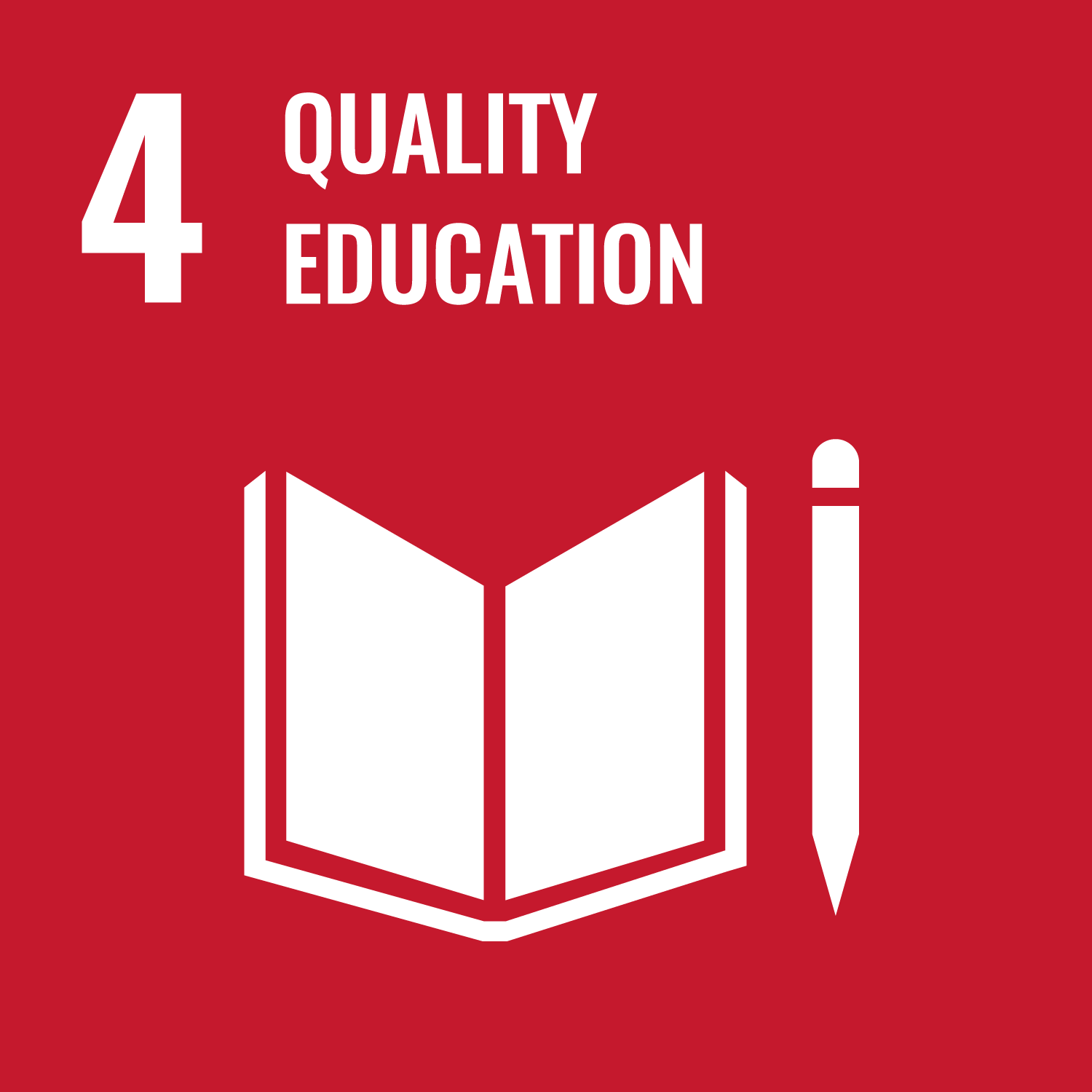 | 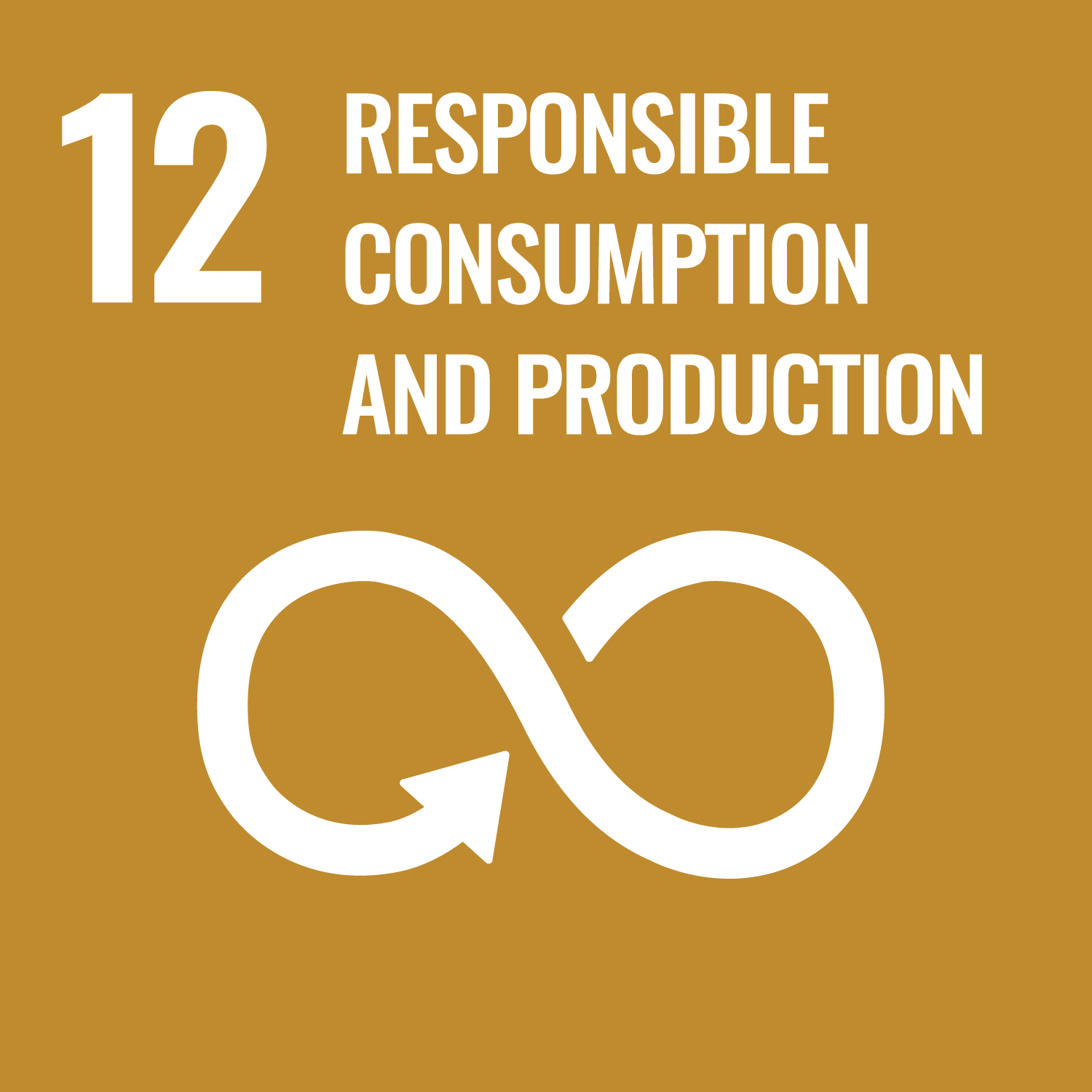 | 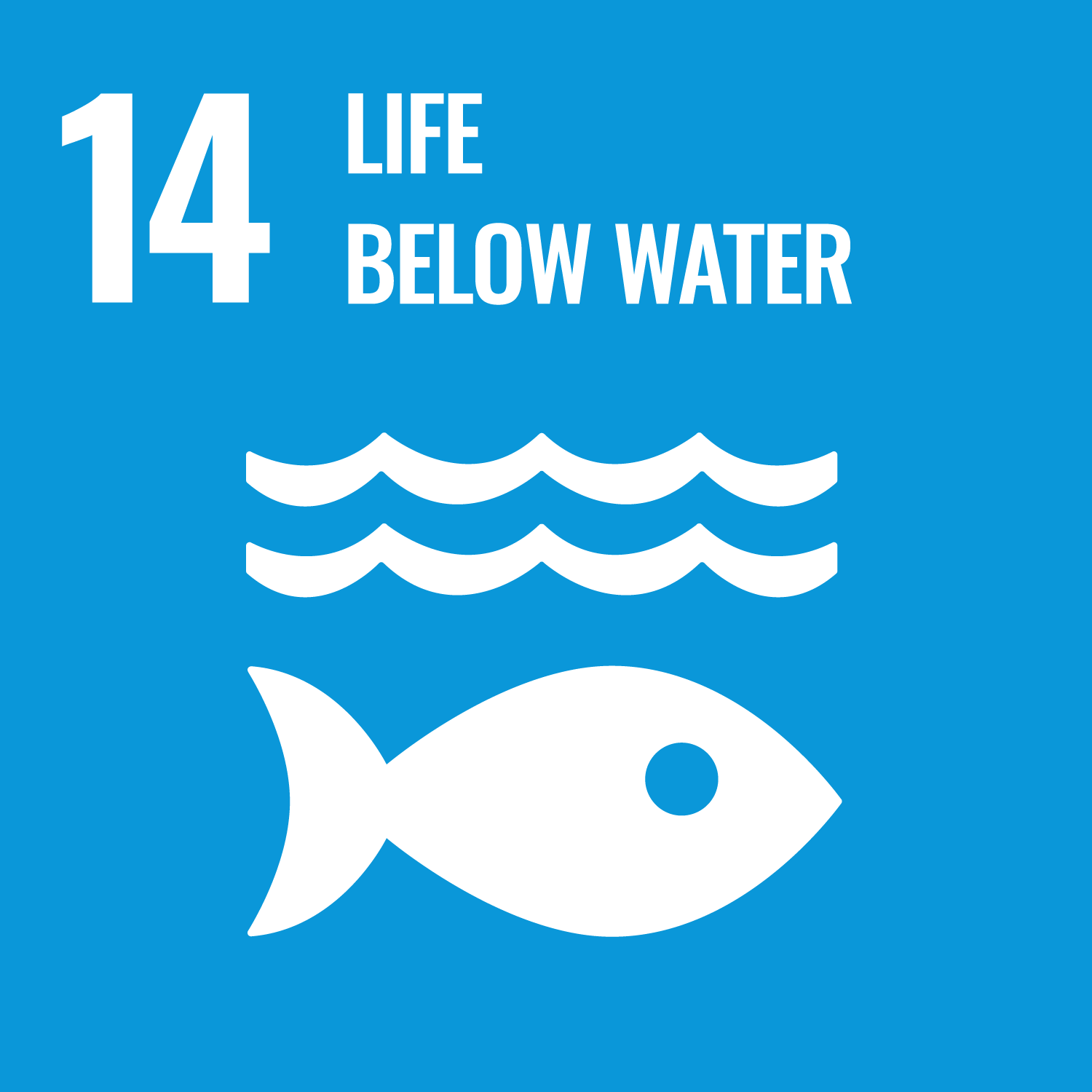 |
Learn more about these Global Goals
| Navigate: | To the article contents |
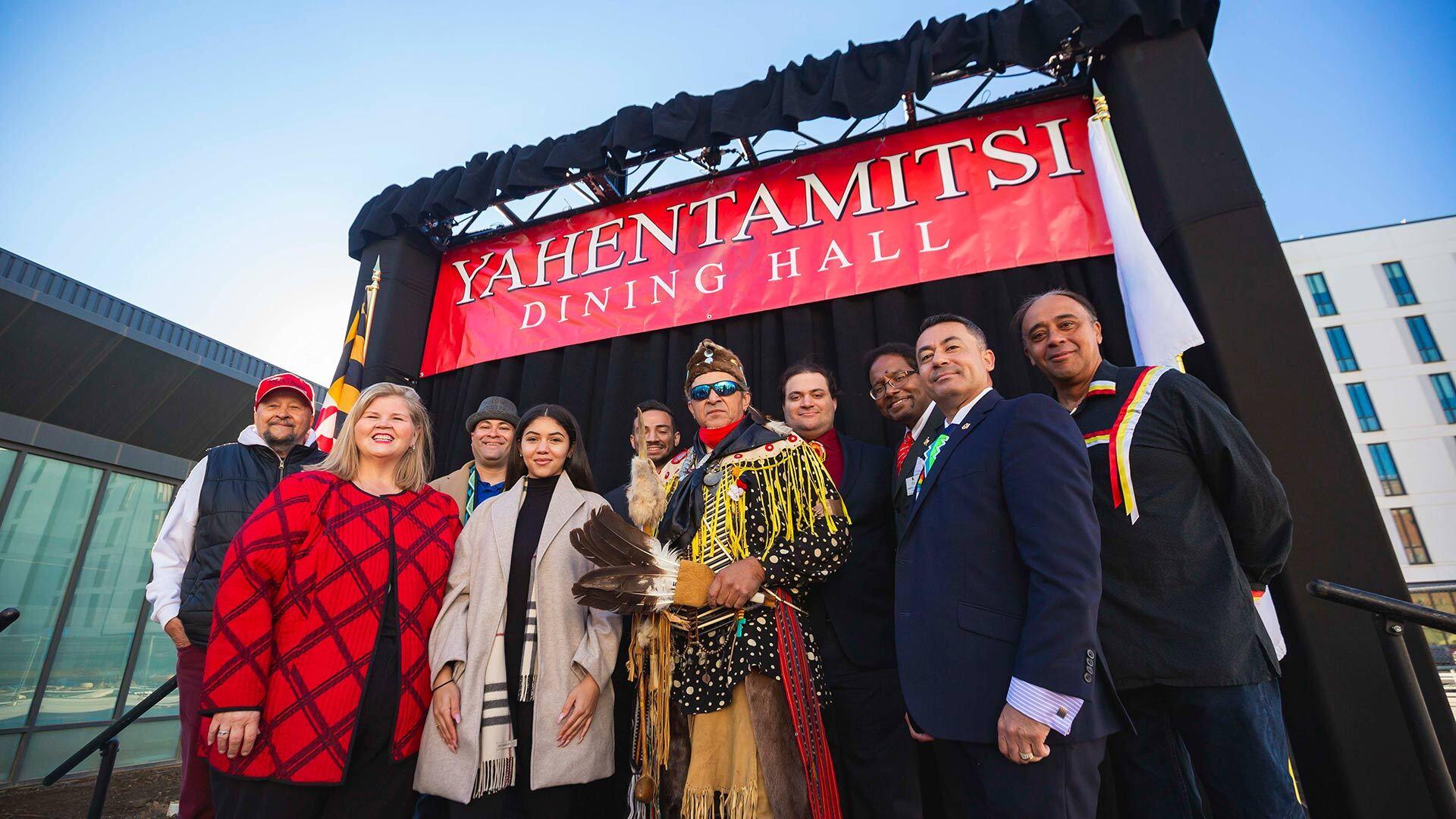
A New Decade of Sustainable Commitments
Moving forward, Dining Services will continue to promote sustainability through the Cool Food Pledge, local food procurement, and maintaining existing sustainability commitments.
Maryland Dining Services continues to move forward with ambitious goals to combat climate change. In partnership with the Menus of Change University Research Collaborative and the Cool Food Pledge, Dining will increase transparency and stringency surrounding food procurement. The new goal of reducing food-related greenhouse gas emissions by 25% below 2017 levels by 2030 is in line with keeping global warming below 2 degrees Celsius and supports the climate action targets at the University of Maryland and global sustainability goals like the United Nations Sustainable Development Goals. Through a new, detailed reporting process, carbon emissions associated with the food served at UMD will be calculated and tracked annually. Analysis of the 2021 food procurement showed per-plate emissions have been reduced by over 34% since 2017. In Fall 2022, Dining launched the Cool Food Meals climate labeling program to identify menu items that have been verified by the World Resources Institute as both low-carbon and healthy. Guests can find Cool Food Meals in the South Campus and 251 North Dining Halls and join in the effort to reduce UMD's food-related greenhouse gas emissions.
On-going projects including Terp Farm and the campus Farmers Market will continue to foster vibrant local food systems at the University and within the broader community. Dining aims to expand support for Maryland farmers through a partnership with the MD Department of Agriculture’s Local Farm Enterprise, and recently partnered with Albright Farms from Monkton, MD to locally source all shell eggs for the dining halls. At the annual Harvest Festival event held in October, executive Chefs create a dinner menu highlighting our local sourcing partnerships and farmers come to campus to visit with students. Beyond sustainable food purchasing, achieving a hunger-free UMD remains central to the Green Dining program. With support from Dining Services, the Campus Pantry and the Food Recovery Network group will continue their important work addressing food insecurity on campus and in the surrounding area.
Dining Services also opened the first carbon neutral dining facility in Fall 2022. The Yahentamitsi Dining Hall embodies Dining Services commitment to incorporate sustainability into operations and dining spaces with LEED design, energy and water efficient equipment. “Yahentamitsi” (Yah-hen-tuh-meet-c), means “a place to go to eat” in the Algonquian language spoken by the Piscataway, who are indigenous to Maryland.
To get involved or find out more about current and future Green Dining initiatives, visit the Dining Services website.
Alignment with UN Sustainable Development Goals
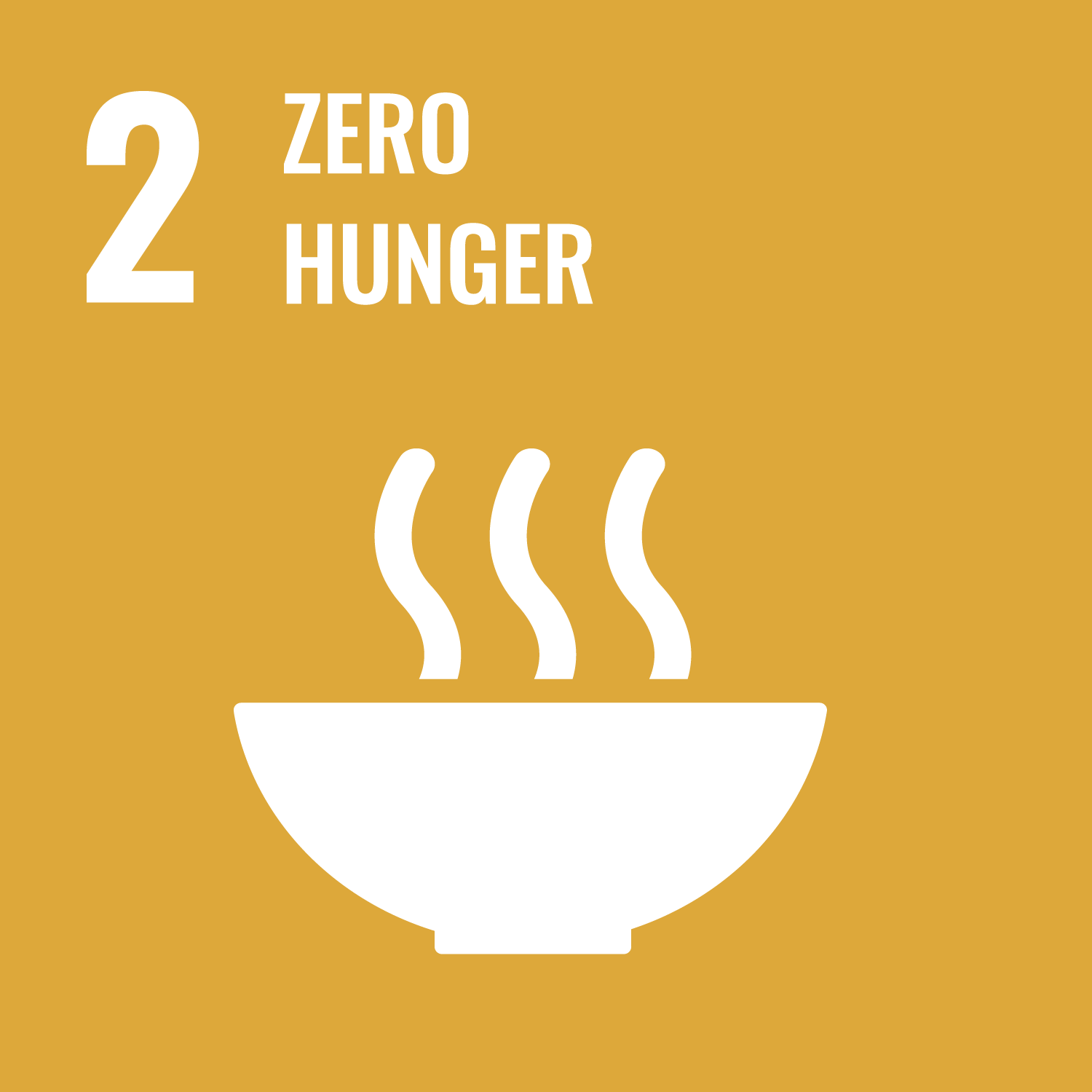 | 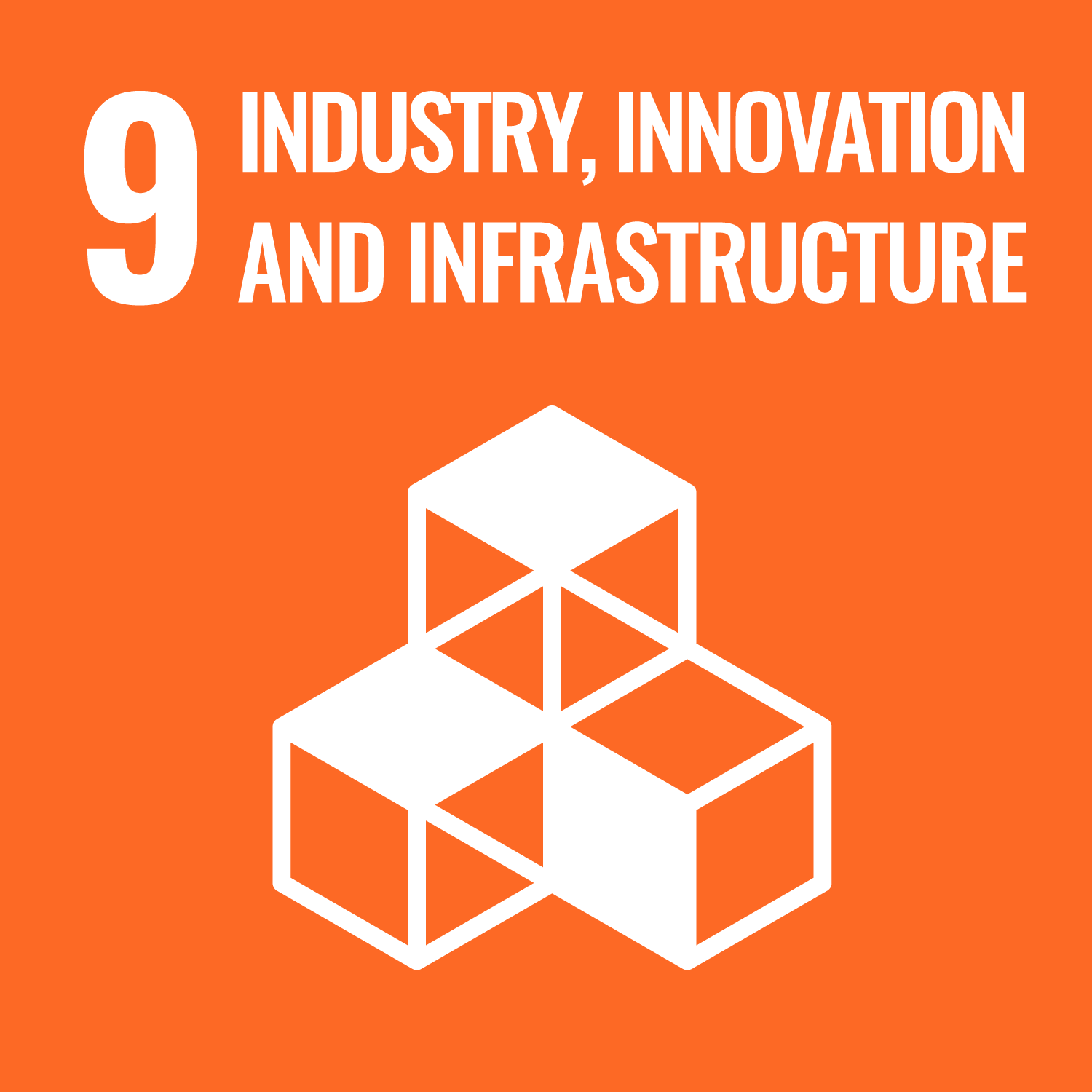 | 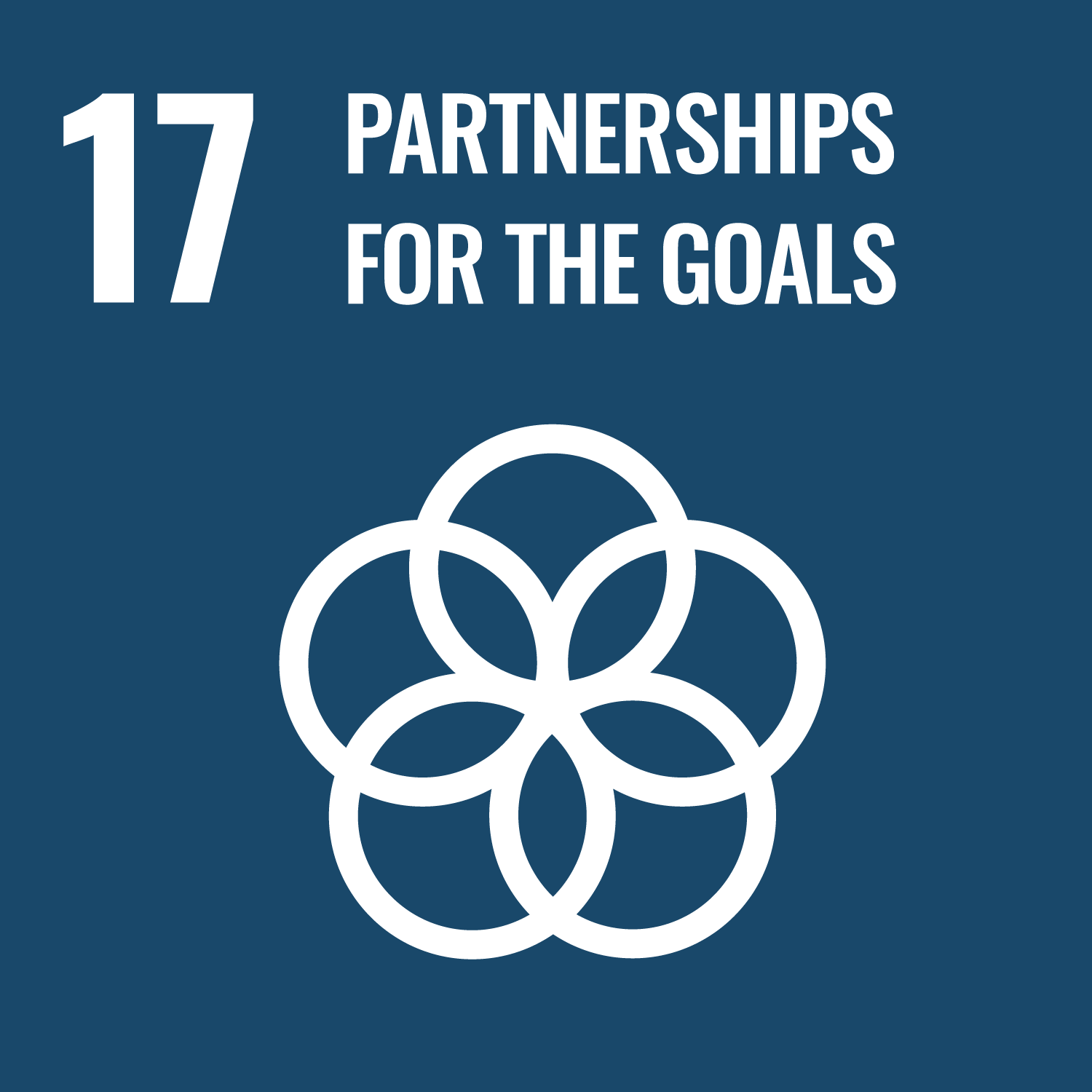 |
Learn more about these Global Goals
| Navigate: | To the article contents |
